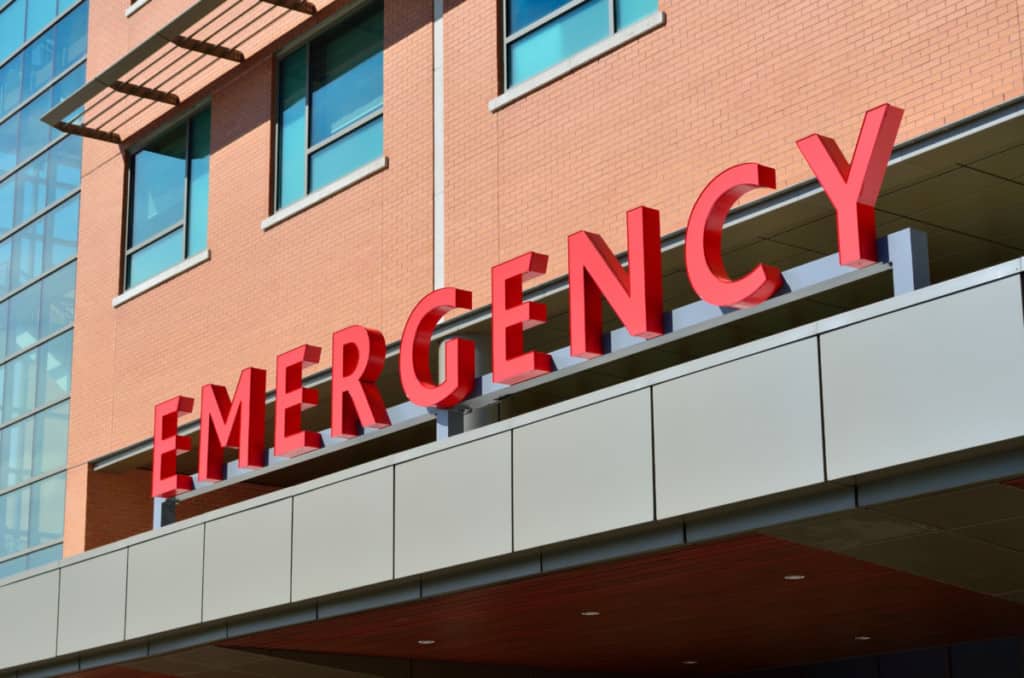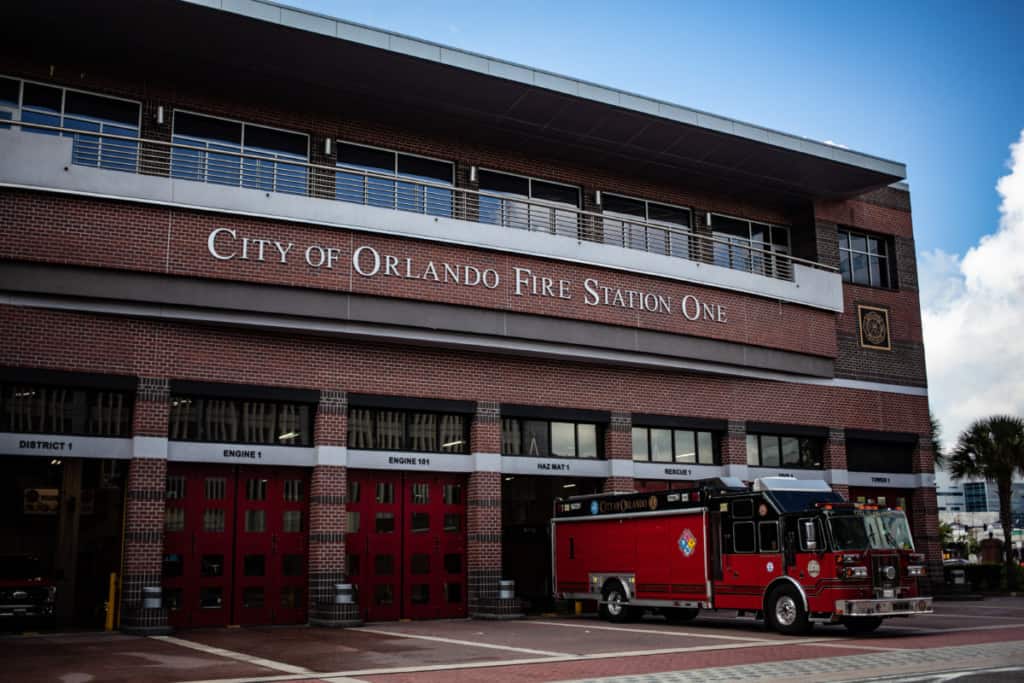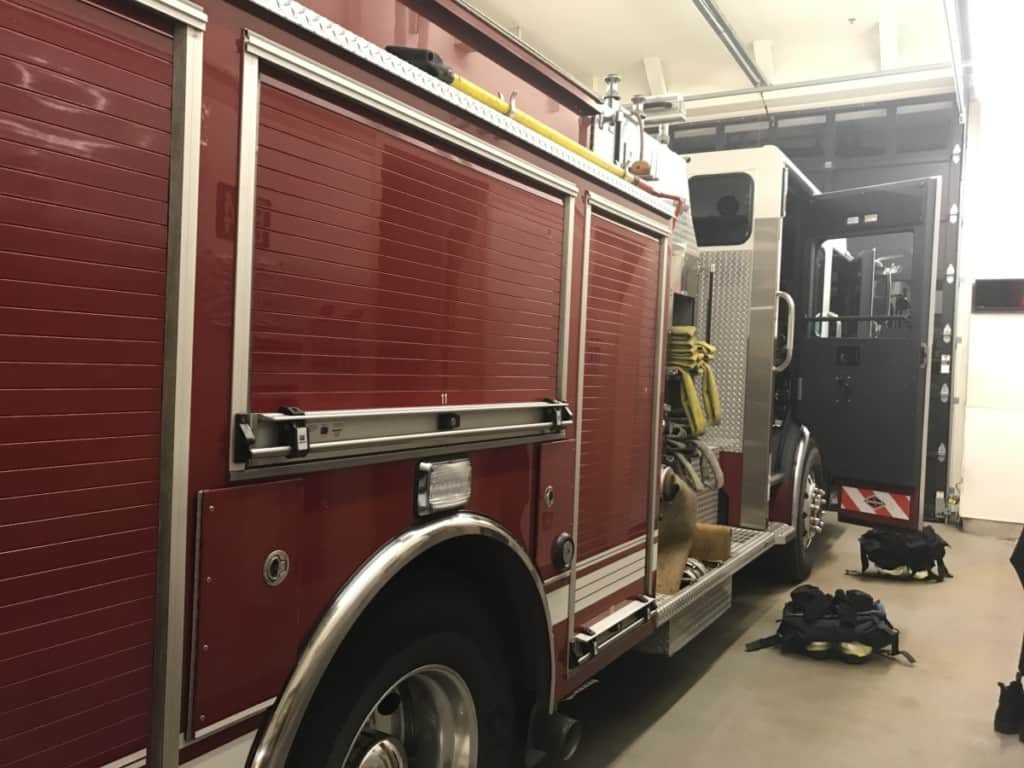Does the Fire Department charge you to put out a fire? Do you have to pay for firefighters to come and extinguish a fire or treat you for a heart attack? Does the fire department bill you? It would be good to know the answer to this before you have to call 9-1-1.
Most fire departments do not charge you to respond to an emergency. Fire Departments are usually funded by tax revenue. There are exceptions to this, such as fire department ambulance transport, and private Fire Departments, that do charge.
Whether or not the Fire Department charges you and where they get their funding can really depend. We will look into all these different situations in this article.
Your # 1 priority is keeping your family safe. As a firefighter, I recommend everyone has updated smoke detectors that don’t require battery changes, like these ones from Kidde, a fire extinguisher, like this one from Amerex, and a fire escape ladder if you have bedrooms above the first floor, I recommend this one from Hausse.
Also read: A Guide To Fire Drills: The Do’s and Don’ts
Fire Department Funding
Fire Departments can be funded (who pays the bills) from a few different sources. Many municipal fire departments are paid for by the taxes collected by the branch of government that they work for (City, County, State, Federal, etc.).
A City Fire Department is just like any other department in the city (Water, Streets, Parks, Police) and will usually be governed by the same city council that runs the rest of the city.
The council has elected members that work together to make decisions on how to run the city. They will allocate money from all the taxes collected (General Fund) to the Fire Department to cover its expenses (yearly budget).
From my experience and research, these types of departments usually don’t charge you for responding. The cost to protect your house from a fire is just part of the reason you pay taxes to the city you live in (as if you had a choice).
Also read: How Much Does It Cost To Become A Firefighter? Firefighter Answers
Fire Protection District
Most people hear Fire Protection District and it never occurs to them that it means something different than a Fire Department. While a Fire Department is part of a city or county government, a Fire Protection District is its own entity. It is not part of a larger government.
A Fire Protection District usually covers an area that doesn’t have its own city government, but that’s not always the case. Sometimes it will cover multiple adjacent towns or villages.
The biggest difference with a District is that it is not overseen by a city council. A district will have its own board of elected members, but they, unlike a city council, only deal with issues related to the fire district.
This means that the district has a set amount of money based on the property taxes paid. There is frequently a specific Fire Tax on a homeowner’s property tax bill that goes to the district.
This can be a good or bad thing. It means that the district doesn’t have to compete for funds with all the other city departments, but it also means that there is a set amount of money to cover its operating cost. (A city council can move funds around to cover increased costs, where a fire district board would have to ask taxpayers for an increase to the fire tax for more money).
A Fire Protection District operates much the same as a Fire Department. Even though you may be paying more directly for their services, they usually don’t charge you for each time you call 9-1-1.
Also read: How Much Does A Fire Station Cost?
Private Fire Departments
You may have heard stories from the 1800s where firefighters were private and would only put out a fire if the owner had paid them for service. Luckily, Private Fire Departments are a lot less common these days (about 4% of all firefighters are private). They don’t work for any government and they only provide services to those who pay for them.
They may charge a yearly subscription type fee to be protected or they may bill for each separate response. These Private Fire Departments have increased in popularity in the last while due to Wildfires (aka Forest fires). California has had quite a few devastating, large wildfires in the last few years and this has caused private fire suppression companies to get more business.
Many celebrities and other wealthy people have hired these private companies to come to protect just their homes as massive Wildfires come through their neighborhood. This type of service may be out of reach price-wise for most of us though.
If you are interested in what it would be like to be a firefighter for a private company, check out Wildfirex.com.
Volunteer Departments
70% of the Fire Departments in the U.S are volunteer-based. This means that the majority of firefighters don’t get paid at all.
Volunteer Departments sometimes get government funding to cover their operating costs, but if/how much they get really varies.
If a volunteer department responds to your house, they usually won’t charge you directly for their services (but I have heard of cases where they do), but a lot of times they will ask for donates to support them after they have assisted you. These donations and other fundraising are the primary sources of money for these departments.
What About Ambulance Transport?

In many areas, when you call 9-1-1 for a medical-related emergency, the Fire Department will respond first. Many firefighters are trained as EMTs and Paramedics as well and can start treatment before the ambulance arrives.
These ambulances can be private companies or part of the Fire Department.
When necessary, the ambulance will transport you to the hospital. This transport service, whether provided by the Fire Department ambulance or a private company, is usually not covered by the taxes you pay. Ambulance transport is a fee that you will be billed for later.
Also read: How Much Does It Cost To Call An Ambulance?
There Are Exceptions
For the most part, as we talked about above, the Fire Department doesn’t charge you for responding. But, there are exceptions.
There is something called an “Emergency Response Fee” in the U.S. This fee has been prohibited in most areas, but there are some states and local governments that have approved this fee.
“…an emergency response fee, also known as fire department charge, fire department service charge, accident response fee, or crash tax is a fee for emergency services such as firefighting, emergency medical services… performed by a local fire department… at the scene of a structure fire, wildfire, traffic collision, or other emergency, billed afterward to the surviving property owner , operator of the vehicle, and/or their insurance companies.”
Wikipedia: Emergency Response Fee
Another exception is when there are false alarms. Depending on the department, there can be a charge or penalty for these false alarms. Most will only charge after there are multiple false alarms at the same location in a short time period.
Many times these frequent false alarms occur because the property owners fail to get their alarm system serviced when it has an issue. In this case, the fee can be charged to motivate the owner to get their system functioning properly.
Lastly, there are some unincorporated areas that may be billed for Fire Department services if they need to respond. This is due to the fact that these areas may not be contributing taxes to the responding department.
Related Questions
Does the Fire Department Charge to Unlock Your Car?
Firefighters respond to open people’s locked cars, but will usually only do so if there is a child or animal locked inside. In this case, they do not charge to unlock the car and rescue anyone locked inside.
How Much Does a Fire Truck Cost?
The cost of a new Fire Engine is about $700,000 to 1 million dollars. A Fire Truck can be anywhere from 1 to 2 million dollars. All the equipment and gear that it carries can be up to another $300,000+.
Related Articles
Does 911 Cost Money? The Price of Emergency Calls
Why Do Firefighters Go to Medical Calls?

